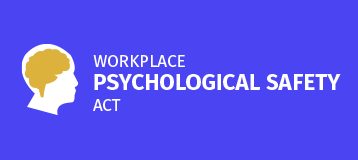
Our Vision for Our Nation's Workers
We believe America’s workers have a right to safe workplaces where their psychological health is recognized as a vital component of overall well-being. All people — regardless of their gender, race, color, national origin, class, ability, sexual orientation, gender identity, age, size, income, faith, religion, and political affiliation — deserve to lead healthy and productive lives and to work in safe environments free from abuse and oppression.
What We Do
We strive to protect and promote workers’ rights to psychological wellness by advocating for the elimination of bullying and mobbing from the American workplace.
We achieve our mission by organizing and leading a national collective movement. We lobby for protective legislation and policies, build leaders who campaign for abuse-free workplaces, raise public understanding about psychological harm at work, and collaborate with other organizations to advance workers’ rights. Bias and prejudice are enmeshed in workplace abuse, so we advocate for strong protections against discrimination.
We are organized around two endeavors, the Workplace Psychological Safety Act and End Workplace Abuse.
- The Workplace Psychological Safety Act is a blueprint for comprehensive state legislation that seeks to protect workers from bullying and mobbing.
- End Workplace Abuse is a tool for advocates to voice their support for psychologically safe work environments and other workers’ rights bills. It is also a platform to partner with other organizations fighting employer abuse and safeguarding workers’ rights.
Who We Are
We are a volunteer-led and volunteer-driven corps of advocates for workers’ rights and psychological safety in the workplace. Most of us are survivors of workplace bullying and mobbing. Millions of Americans are impacted by psychologically unsafe workplaces, and among them are inspired people who seek justice. We work collaboratively to build a network spanning the U.S..
Why End Workplace Abuse was founded
Paradoxically, workplace bullying happens at a higher rate in organizations whose missions focus on serving the greater good. These organizations encompass nonprofits, government, and institutions in education, health, and human services and include organizations set up to fight injustices such as workplace bullying. End Workplace Abuse was founded to address this disparity. We vowed to set up a different kind of organization built on equitable, inclusive, and collaborative leadership and guided by processes, procedures, and policies that would minimize the possibility of harm to those we work with.
Founders
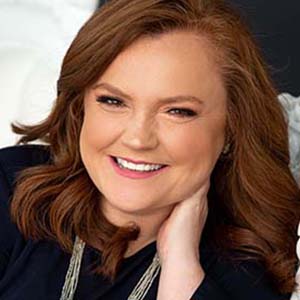
Deb Falzoi
When Deb saw her former employer in higher ed embolden an abusive higher-up in 2007, she knew she had to challenge the system that allows employers to police themselves with no consequence. In her own career, she felt held back by higher-ups who wanted to look the part of leader but didn't take responsibility for maintaining psychologically safe work cultures, part of leadership. She saw firsthand how those in power channel sexism and racism through bullying acts to maintain their power.
When she saw this hypocrisy in the anti-bullying space, she knew she had to create a better way, where we walk the talk to inspire with humility, flatten the hierarchy, embrace mistakes, talk through problems, and value skills and backgrounds. Believing all employees deserve psychological safety, dignity, and respect at work for well-being, Deb co-founded End Workplace Abuse to move the needle on safer workplaces, building on her decade of working to create a national movement to end this epidemic.
As a coach with Dignity Together, Deb helps employees navigate and heal from workplace abuse and define themselves according to their own values. She hosts the "Screw the Hierarchy" podcast and has been quoted in numerous media outlets including Redbook, Forbes, Monster, and Truthout. She co-authored the Workplace Psychological Safety Act and developed a base of thousands of supporters of workplace anti-abuse legislation nationwide.
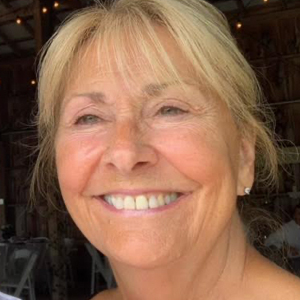
Vicki Courtemanche
On March 15, 2018, Vicki left her paycheck on the table and walked away from her job. She’d been psychologically abused for 15 months and had no idea it was distinctive of the phenomenon of workplace bullying and mobbing. The facts were not debatable. The bully’s behavior was deviant, unethical, and unprofessional: the complete antithesis of workplace
behavioral expectancy posted, printed, and distributed throughout the institution where she was employed for more than two decades. She believed her employer’s representative employees when
they told her there was a viable complaint process and investigations would ensue. It was only in the aftermath she realized the bully’s aberrant behavior was only the tip of the iceberg of psychologically abusive workplace behavior. What lay beneath was far more dangerous, but she
couldn’t see any of it. It was the ultimate con.
Embracing her faith, she began her advocacy work garnering organizational endorsements for workplace anti-abuse legislation shortly after leaving her toxic work environment. In 2019, she
testified about her workplace experience at the Massachusetts State House. In 2020, she began serving as a support group leader for Dignity Together. In 2021, she created and ran testimony trainings to
encourage advocates to come forward. More than 50 advocates testified in tandem at the Massachusetts State House. In 2022, she served as the director for the first national protest in the U.S. to raise public awareness about workplace bullying and mobbing. The protest made USA Today. Later that year, she co-founded End Workplace Abuse and co-authored the Workplace Psychological Safety Act. She freely admits advocating has proved to be the best medicine in
countering the devastating effects of workplace abuse.
National team
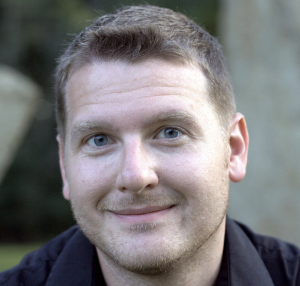
Chris Bajgier
Legislative Data Lead
Chris Bajgier is a product thinker who has spent most of his career focusing on lifting the financial well-being of retail banking customers. He's built product teams and tracked the impact of their work through robust data pipelines. He's an advocate for human-centered design and data-driven decision-making and believes in the potential for both to engender progressive political outcomes.
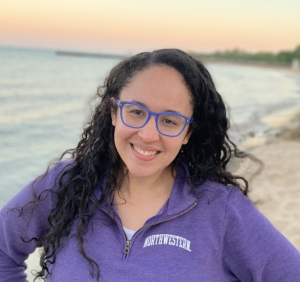
Cristina Orozco
Onboarding Co-lead
Cristina Orozco joined Phius in 2023 as the Training Program Administrator.
Cristina is originally from New York and moved to Chicago to teach high school at Urban Prep Charter Academies. Before joining Phius, Cristina was an Instructional Designer with the American College of Surgeons. Cristina’s prior work experiences include technical instructional design with a management consulting company, Ronald McDonald House Charities Global, and other roles within teaching, counseling, and learning development within Higher Education and education nonprofit institutions.
Cristina holds a Bachelor of Arts in History from the University of North Carolina at Chapel Hill and a Master’s in Science In Higher Education from Northwestern University.
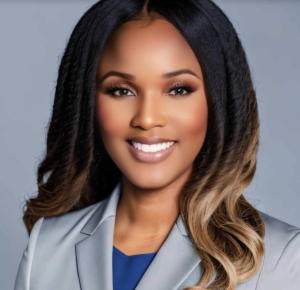
Shanesha Scott
Onboarding Co-lead
Shanesha is a recent graduate in Industrial and Organizational (I/O) Psychology, a bestselling author, and a prominent figure in corporate America. With a steadfast commitment to creating positive change, Shanesha has embarked on a mission to advocate for transforming toxic work environments and preventing workplace bullying.
As a freshly minted I/O psychologist, Shanesha deeply understands the intricate dynamics that shape organizational behavior and employee well-being. Throughout her academic journey, she extensively researched the detrimental effects of toxic work environments and the strategies to foster healthy and inclusive workplaces. Her academic achievements and expertise in the field have positioned her as a sought-after authority in workplace psychology.
Beyond her academic pursuits, Shanesha is a talented author who has achieved remarkable success with her best-selling book, "Birthing the Leader Within You. Your Guide to Becoming an Effective Leader." The book resonates with readers by providing practical guidance and actionable steps to navigate with up-and-coming leaders.
Shanesha’s passion for advocating for change stems from her encounters with bullying and toxic work environments in corporate America. These experiences have fueled her determination to create awareness and provoke meaningful change. Driven by her firsthand understanding of these situations' devastating impact on individuals and organizations, she has become a vocal advocate for fostering healthy work cultures prioritizing respect, collaboration, and inclusivity. Through her work, Shanesha aims to empower individuals and organizations to create workplaces where everyone can thrive and flourish.
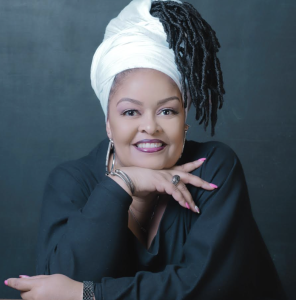
Alia Sutton-Bey
Outreach Lead
Alia Sutton-Bey is the Owner and Principal Consultant of A Sutton-Bey, LLC, a boutique consulting firm that empowers organizations and individuals to create resilient, inclusive, and thriving workplaces through training, coaching, and consultancy services. With over two decades of experience in youth development, program management, and
consulting across municipal, educational, nonprofit, and workforce sectors, Alia brings a wealth of expertise to her role. She is the creator of the Trauma-Informed Managers Series, a workshop series designed to train managers and leaders in compassionate leadership, foster environments of psychological safety, and transform workplaces into
spaces that promote professional and personal growth. Alia's commitment to social justice and equity is evident in her work, where she leverages her experience to bridge employment opportunities for underserved communities and advocate for workplace psychological safety. With a passion for human-centered design facilitation and trauma-informed practices, Alia blends academic expertise with practical experience to catalyze positive transformations within organizations and communities. As an active member of the YouthBuild Pennsylvania Coalition and the International Association of Facilitators, she remains dedicated to advancing human and organizational wellness
while championing social and economic justice initiatives.

Kim Williams
Business Advocacy Lead & Spokesperson
Kim Williams is an HR chief who understands workplace abuse from both sides. She has managed countless internal investigations in a wide variety of environments and has had to file complaints against her own boss, and chief executive, for bullying and harassment. Drawing from both perspectives, Kim regularly speaks about the back-channel conversations that take place between HR and the top of an organization. She also teaches people how to advocate for themselves and build up direct evidence that can support a formal complaint or legal claim.
Kim is a regular podcast guest and has been featured in national news publications to include U.S. News & World Report and Entrepreneur. She is a former diplomat and spokesperson who dedicates her time to building better business cases for toxic free work environments.
Our Commitment to Dignity, Agency, and Well-Being
Workplace psychological safety is a social and racial justice issue. Privileging white, able-bodied, cisgender men and those who emulate them, traditional power structures are the root cause of workplace bullying. They create dynamics that make women, BIPOC citizens, LGBTQ citizens, and the disabled more likely to become the targets of abuse. To nurture people, especially those most frequently injured by workplace bullying, we prevent hierarchy and authoritarian leadership which allow workplace psychological abuse to proliferate.
Instead, how we work is meant to allow us to nurture the broad and diverse range of people affected by workplace psychological abuse.
- We ground our work in collaborative leadership that is built on respect for the people we work with. Our leadership model is characterized by shared goals, consensus-based decision-making, partnership, transparency, clear and honest communications, a willingness to work through disagreement, acknowledgement of our collaborators’ expertise, openness to new or different ideas, and shared learning.
- We are committed to trauma-informed approaches and adhere to the guiding principles of safety, choice, collaboration, trustworthiness, and empowerment.
- We believe in accountability, taking responsibility for our decisions and actions and communicating about them, following through on what we promised, and owning our mistakes.
- We prioritize well-being – physical, emotional, and mental.
- We are dedicated to anti-racism. We strive to understand how we contribute to inequities and find ways to improve our practices.
- We have zero-tolerance for bullying behavior or behavior that leads to a toxic work culture.
Those who work with us – volunteers and organizational partners – uphold sound work practices. We partner only with those who align with our values and mission.
Contact Us
Email at info@endworkplaceabuse.com
